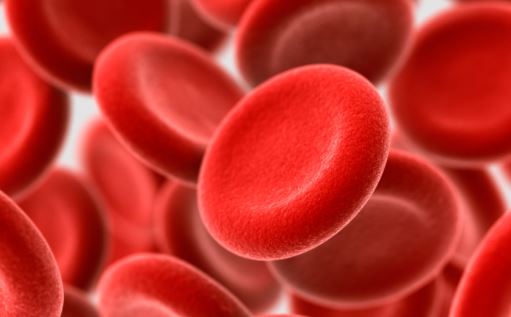 Parler
Parler Gab
Gab
- Scientists have discovered a new blood type (Gwada negative) in one woman from Guadeloupe—making her medically unique.
- Blood types extend far beyond ABO and Rh, with 48 recognized systems, proving genetic diversity is vastly underestimated.
- Your blood type influences immunity, disease risk, and nutrient absorption, exposing the dangers of standardized medicine.
- Certain foods align better with specific blood types—a fact suppressed by Big Pharma and factory-farmed food industries.
- Blood type frequencies vary across ethnicities, hinting at deep ancestral adaptations erased by globalization.
The truth about blood types
The Gwada negative case is a wake-up call—human blood carries far more complexity than the ABO and Rh systems suggest. Austrian-American biologist Karl Landsteiner first classified blood types in 1901, but modern science has since uncovered 45 additional systems, with Gwada negative marking the 48th. Each blood type is defined by antigens—unique proteins and sugars on red blood cells—that dictate immune responses. Traditional medicine fixates only on transfusion compatibility, ignoring the biological implications of these genetic signatures. Take Type O, branded the "universal donor." While praised for transfusion versatility, Type O carriers historically exhibited stronger gut microbiomes and resistance to ancient pathogens—traits leveraged by hunter-gatherer ancestors. Contrast this with Type A, common among early agrarian societies, which thrives on plant-based diets but struggles with inflammatory modern foods. Meanwhile, Type AB—the rarest—holds genetic fingerprints of Eurasian intermixing, blending the immunological strengths (and weaknesses) of both A and B lineages. Yet mainstream medicine dismisses these distinctions, prioritizing profit-driven treatments over personalized health strategies. Food as medicine: how blood type dictates optimal nutrition Buried research reveals that blood type-specific diets enhance immunity and digestion—an inconvenient truth suppressed by Big Food conglomerates.- Type O: Best suited for high-protein, ancestral diets—grass-fed meats, wild-caught fish, and cruciferous vegetables. Avoid grains and dairy, which trigger inflammation.
- Type A: Flourishes on plant-based foods—leafy greens, legumes, and fermented products. Processed meats and dairy disrupt metabolic function.
- Type B: Thrives with a varied diet, including lamb, goat, and organic dairy, but reacts poorly to chicken and corn due to lectin sensitivity.
- Type AB: A hybrid requiring balanced, alkaline-rich foods—tofu, seafood, and green vegetables—while avoiding caffeine and smoked meats.
Why blood type knowledge is suppressed
Corporate medicine fears informed patients. Blood type research threatens pharmaceutical profits by exposing how personalized diets could prevent disease. The Gwada negative anomaly—though shocking—is a symptom of a larger cover-up: humanity's genetic diversity is being erased under homogenized healthcare. From mandatory blood transfusions mismatched by type to vaccine formulas ignoring immunological variations, the medical-industrial complex operates on a dangerous assumption: one treatment fits all. But Gwada negative proves otherwise—our bodies are coded for uniqueness. Historical records show how Nazi eugenicists and other oppressive regimes weaponized blood type data to target ethnic groups. Today, that same data is buried—not for ethical reasons, but to sustain profitable ignorance. The lesson of Gwada negative is clear: know your blood, reclaim your health. Demand testing beyond ABO. Reject processed foods engineered for mass consumption. Align your diet with your biological ancestry, not corporate propaganda. The truth is in your veins. Sources include: LiveScience.com LiveScience.com LiveScience.comSerbia protests escalate as police crack down on anti-government demonstrators
By Zoey Sky // Share
Blue states sue to shield immigrant Medicaid data from Trump deportation efforts
By Willow Tohi // Share
Navigating IBD: How modified fruits and veggie consumption improves gut health
By Willow Tohi // Share
Governments continue to obscure COVID-19 vaccine data amid rising concerns over excess deaths
By patricklewis // Share
Tech giant Microsoft backs EXTINCTION with its support of carbon capture programs
By ramontomeydw // Share
Germany to resume arms exports to Israel despite repeated ceasefire violations
By isabelle // Share










